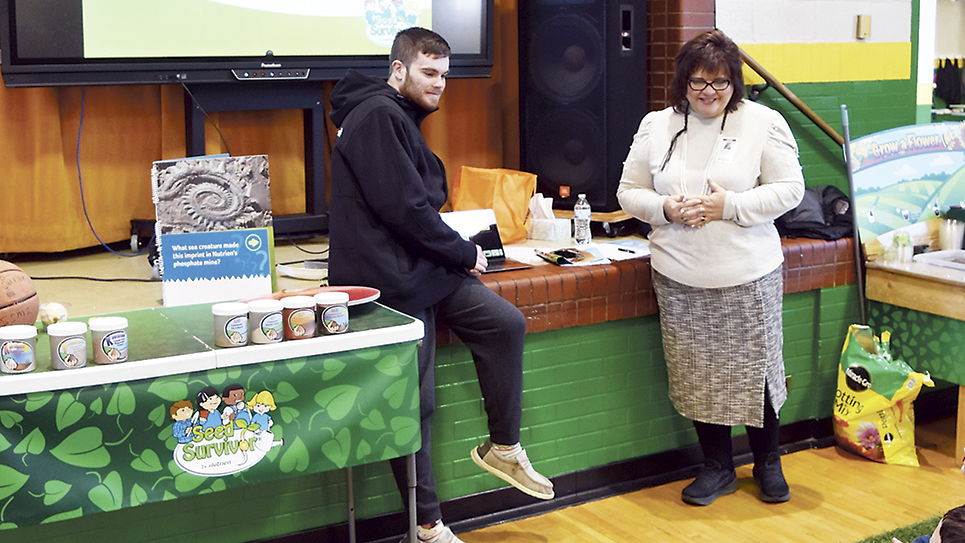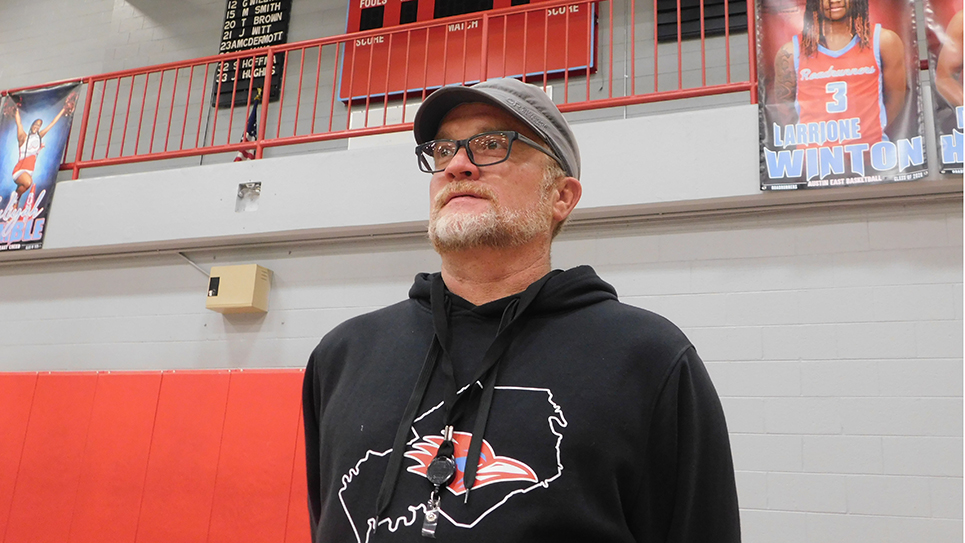Planting the seeds of knowledge
By Ken Leinart
How much of Earth is actually available for growing food? What food is grown in the United States and East Tennessee? What does a plant seed need to grow?
Those questions and more are answered during “Seed Survivor” a free, curriculum-based learning experience encouraging children in elementary school, specifically grades 3-4, to understand the importance of agriculture.
Nutrien Ltd. sponsors the Seed Survivor Mobile Classroom and allows students to compete as virtual farmers, dig for real fossils (and learn how they relate to agriculture), and even plant a sunflower seed to take home and grow.
Students at Norwood Elementary School were visited by the mobile classroom Thursday, Dec. 12, and were given a first-hand look at the numerous factors involved in growing food to feed not just themselves, but the planet.
They were told about food-producing plants that do not grow in the United States. A good example was the cocoa bean – what kid doesn’t like chocolate – and how the bean is dried, sent to other countries, and mixed with other ingredients to make chocolate.
It was explained that countries around the world trade agricultural products because different plants need different climates to grow.
They were told about the importance of nutrients for plants, the various types of soil, and how technology is an important tool in producing food – making the process more efficient and less labor-intensive.
The sponsor of the mobile classroom, Nutrien LTD, has been doing this project (mobile lab) for several years, Pamela Stout, one of Thursday’s presenters said. But this is the first year the mobile classroom has toured Knox County Schools.
The visit to Norwood was one of four during the week of Dec. 11-13, with stops at Copper Ridge and Spring Hill completed and South Knoxville Elementary scheduled for Friday, December 13.
Stout, who chairs the Knox County Farm Bureau Women and is a member of the board, said there are other events to “educate and communicate” the importance of agriculture to students. She noted the Tennessee Agriculture Literacy Week, held the week before Thanksgiving, and Farm Day, held in May at Chilhowee Park.
“A lot of kids don’t really know where their food comes from,” she said.
During Thursday’s mobile classroom at Norwood, Stout explained to the students that only 12% of the surface of Earth is suitable for producing food.
“Every hour, in the state of Tennessee, we are losing 10 acres of agricultural land,” she told them.
“Has everyone seen a football field? That’s about an acre. Every hour we are losing 10 football fields that used to be in farming production,” she told them.
Farming, she said, is “Hard, it’s challenging, but we are doing it every day. That’s why we have to think outside the box and come up with new ways so that we can produce the fruits and vegetables to sustain life. Every day is a challenge to make it work.”
She told the students farming is a 24-hour job. “Especially if you’re a dairy farmer,” she noted.
She also told the students, “Agriculture is not just farming. Agriculture is the leading industry for the state of Tennessee. That’s why we come to teach you guys about agriculture.”
Students were also allowed to try their hand at farming – sorta – by planting a sunflower seed to take home to watch grow so they could get an understanding of what a plant needs to thrive.
She said the mobile classroom, as well as the other events teaching agriculture, are always welcomed by students.
“They’re amazed, excited,” she said. “It shows them food doesn’t ‘just appear’ in a grocery store.”







